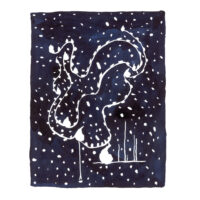Tichaenzana Koke and Trymore Munyori are working with the Biodynamic farming initiative at Kufunda in Zimbabwe, which is both working to transform the land within and around Kufunda and support the spread of this way of farming and being with the land to their neighbors and local community. Maaianne Knuth, founder of the learning village Kufunda, joined them in the talk.
What is your background in farming and agriculture?
Trymore I grew up in Zimbabwe. My father was a farmer, so we spent a lot of time just being with him in the fields and in the garden. He used to practice permaculture. I was very interested in farming. Agricultural is very important for me, because we live from it – everything comes from it.
Ticha I started to enjoy farming while I was still in school, when I did some practical things in agriculture. After finishing school I went into town to find something to earn income. I found it with horses. So I worked with horses for twelve years. And I still work with the horses at Kufunda. The idea came to me: how do I use this manure, which is leftover? I found a piece of garden to use this manure to feed the soil and also fruit trees. That is when I realized my passion for agriculture. Now, I’ve ended up in Biodynamics.
Maaianne We had two biodynamic teachers who visited us, Anna and Rolf. They went to visit Ticha’s garden and afterwards said to me that he really has a connection to plants. That’s when he stepped more fully into our work. Trymore has been working with Kufunda agriculture a little bit longer and did the change from permaculture to biodynamic farming with us. Our work with Biodynamic farming comes from our inspiration with Waldorf education. Through our deepening into Waldorf we also started looking at other ideas Steiner brought forth. We´ve been on a journey the last three years, deepening our studies and understanding of Biodynamic farming.
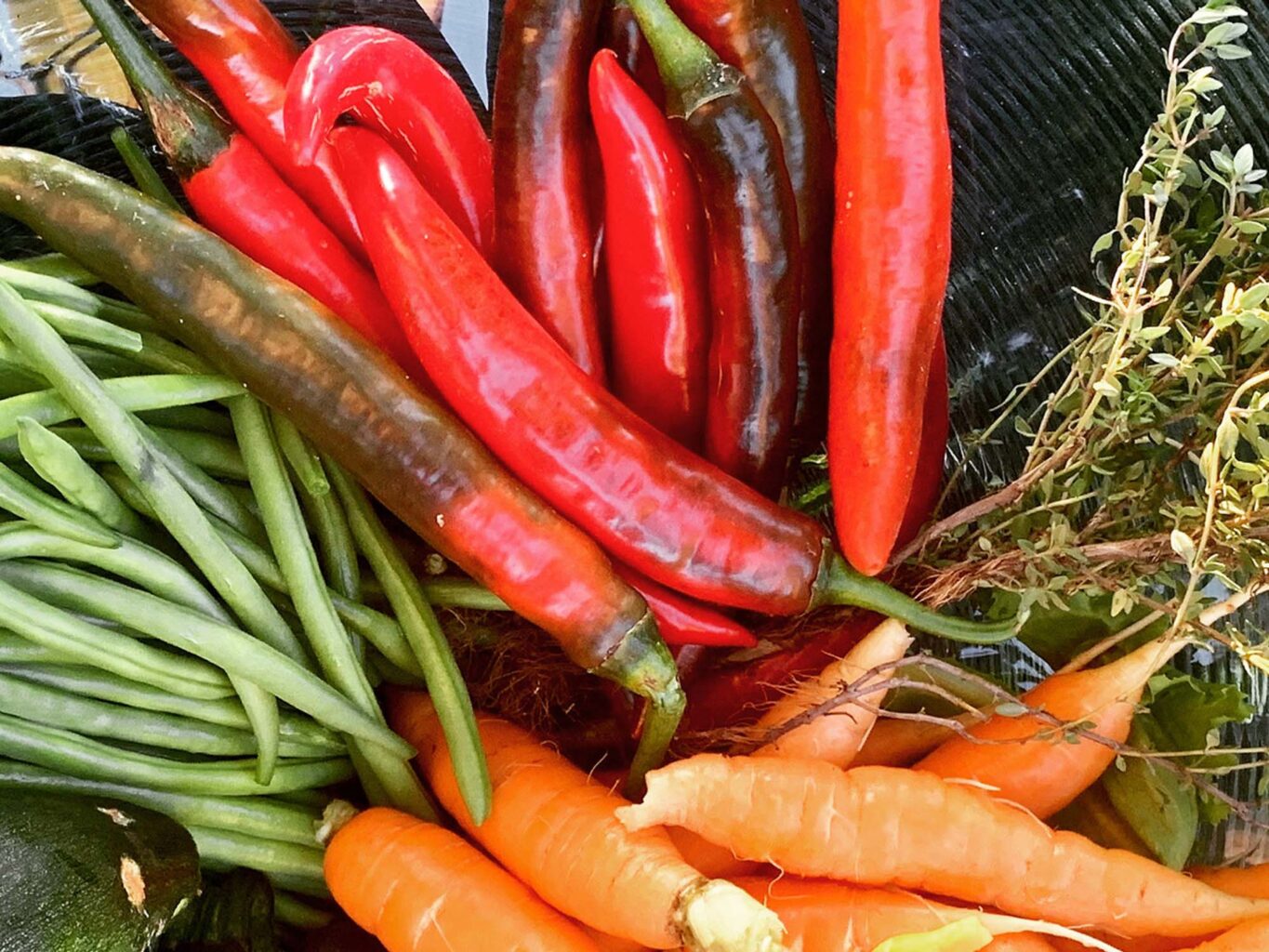
So what is Biodynamic farming? What do you see as its main advantage?
Trymore It is a good way of farming. It works with everything that you find within the farm, rather than outside. It is the most sustainable farming, because it is endless. The farm can help and sustain itself. You can use manure and crop leftovers from the farm. We plant our own compost preparations, which help to improve our soil fertility. When we grow our food, the products will be healthy and balanced. It helps to create living soil. It helps to create relationships between earth and cosmic energies. Biodynamic farming is very important for me. It helps also to create a cosmic image to environment, and it works with the social environment. 500 and 501 preparations help improve the soil, but also air pollution is prevented and our water stays clean because we don´t use fertilizers. So Biodynamic agriculture is a very healthy thing for me.
Ticha Biodynamic agriculture is a concept of farming which works with the whole universe: the sky, the moon, the stars, and the earth itself. They get to contribute to support the plants. It is not only working with plants and soil, but engaging everything to influence the plants. The main advantage of the Biodynamic way of farming is that it tries to work with today’s climate conditions. It works with nature and with what is available in the farm. You don´t need to go outside – you get all from your farm. This way of farming is healthy. We taste it in the way the plants grow. They have a different structure and taste.
Maaianne We have been working with plants for 20 years, but we were all really struck by the improvement in taste: the sweetness of the carrots, the spinach – even more than working with organic, which was our starting point. The taste convinced people most.
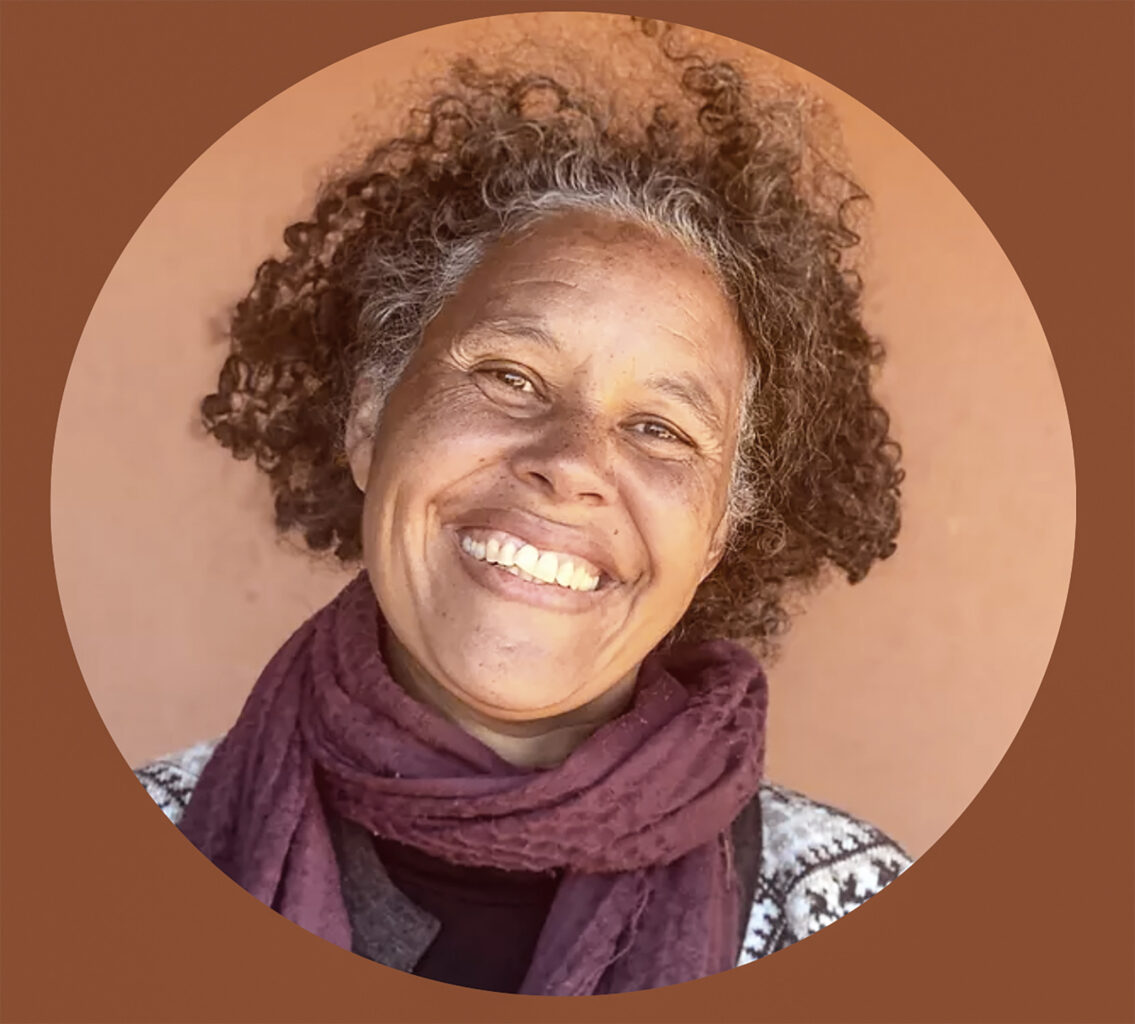
How do people and friends react, when they come into contact with biodynamics?
Ticha People react positively when they taste it. That is true, even if they thought at first that Biodynamics aren’t a good way of doing agriculture. The quality of the products is just better. So they started to appreciate the way of farming. Then members of our community wanted to join in more when we started communicating what we were doing and started growing some things together. They also experienced it as a more traditional way of farming, which they know from their ancestors.
Trymore They were exited, but they really needed more information. Biodynamic farming has a lot of theory and materials to study, which one needs to understand. These same practices were more or less used by our ancestors in Zimbabwe, but now they are coming back from Europe. People are astonished: ‹Wow, this used to be with our ancestors – we used to keep our own seeds instead of buying from the shops. But now this way of farming tells us to save our seeds. We are not spending money to buy our seeds…› So they are exited to learn more. They are keen to work with us.
Maaianne We just began a veggie basket pilot project. We provide weekly veggie box to families in town. Our garden is quite small, so we are working together with local farmers, supporting them, bringing the preparations to their compost heaps, helping them with spraying the soil and plants at the right time. We still see a slight difference. It takes time to teach how to work with it. It isn´t just a technique, but also a shift in relationship, with both plants and soil. It´s inviting to a deeper level of presence to what surrounds us every day as farmers. It is an exiting journey. To make the preparations is very detailed work. We make them as a community together. The farming is central to Kufunda.
Trymore As we started the veggie basket pilot with the community, they were really happy to come and work with us. They also benefit. The customers we have pay good money. I also like that the food grown with Biodynamics stays longer in the shelfs than fertilized plants.

How does this come together with the traditional way of farming?
Trymore We used to do it, but when fertilizers and chemicals came, we forgot it. In the past years they used to feed their livestock from forest plants. It is not a new thing for us. The new name ‹Biodynamic› confused them in the beginning. DAS KOMMT WEG!
Ticha This way of farming is very close to the old way, which was practiced by our ancestors. That was the knowledge of the past. They used natural fertilizers like leaves from the forests.
Maaianne There was a way of farming which was more connected and organic. All of these ways which are more natural come closer to how our ancestors did.
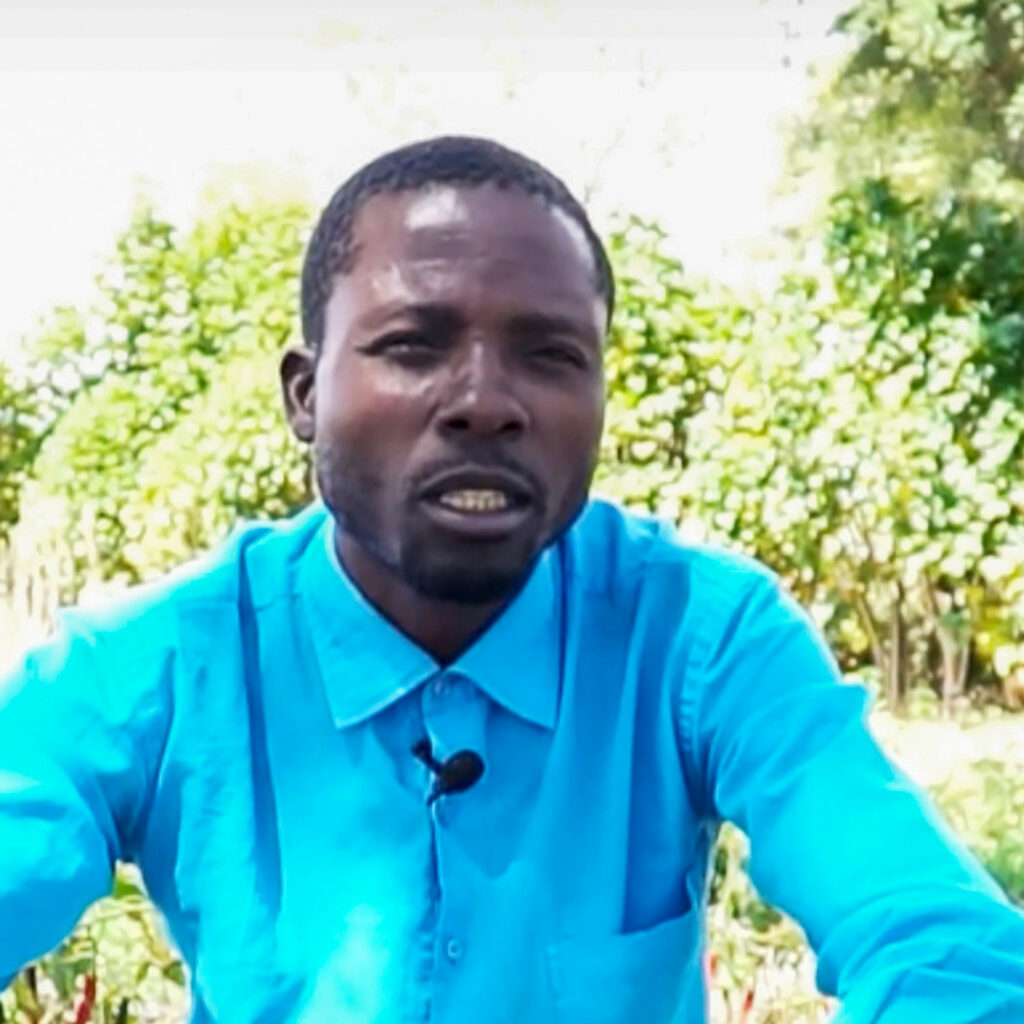
Trymore Technology also causes trouble to our farming. Companies are competing, giving polluting chemicals away for free. People run after cash crops, which need fertilizers to grow more and more. People are eating poison when they spray chemicals, but they are not clear about it and maybe don´t care, because they want money. DAS KOMMT WEG!
Maaianne Part of the problem is that life is really tough at the moment. This is a short term solution. The land is getting more and more depleted. People getting less and less healthy. It is a vicious cycle. And the government is promoting it and calls it ‹command agriculture›. It is very far from the organic, natural way of farming and being connected with the land of our ancestors. A lot of small farmers are beginning with it.
What do you think of the industrial livestock farming of Europe?
Ticha We started to see this type of farming for chickens here as well, but we have our own ‹Roadrunner Chicken› here, which tastes much better. I don´t know why we have to pass over the good things that we used to do. If it is good for our leaders to take measures to introduce healthy things for humans, it would really change our human lives. But the influence of these bad things is big. DAS KOMMT WEG!
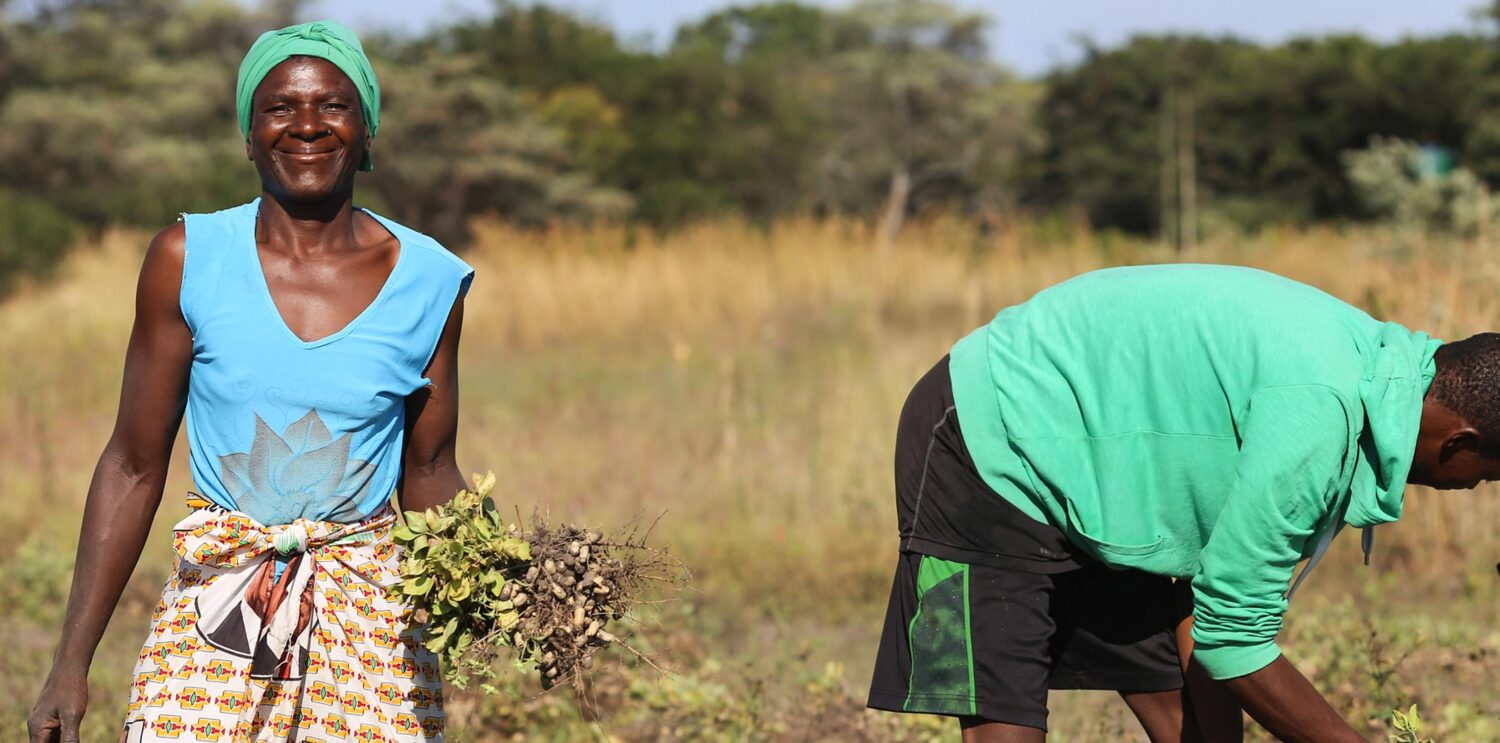
Trymore This way of livestock management is not good. When they do it, they only promote the market, but they don´t look inside. Organic farming could be a subject in school. So maybe people could be educated in terms of nutrition. Good food is better for our living than anything else. And bad food is going to make us sick.
Maaianne That takes us to the full circle. Our Waldorf inspired school brought us to Biodynamic farming, and now Ticha and Trymore are teaching Biodynamics to the children at school. Each class, from class 3 onward, has their own space in the garden. Older kids start selling the plants that they grow. DAS KOMMT WEG!
Ticha I´m really exited and really like to wake people up to this form of farming that is so well suited for mother earth. We have to treat her with our best. And I´m learning something from the children, even though I teach them.
Trymore My wish is that more and more Zimbabwean farmers would use Biodynamic farming.
Image source: Kufunda




